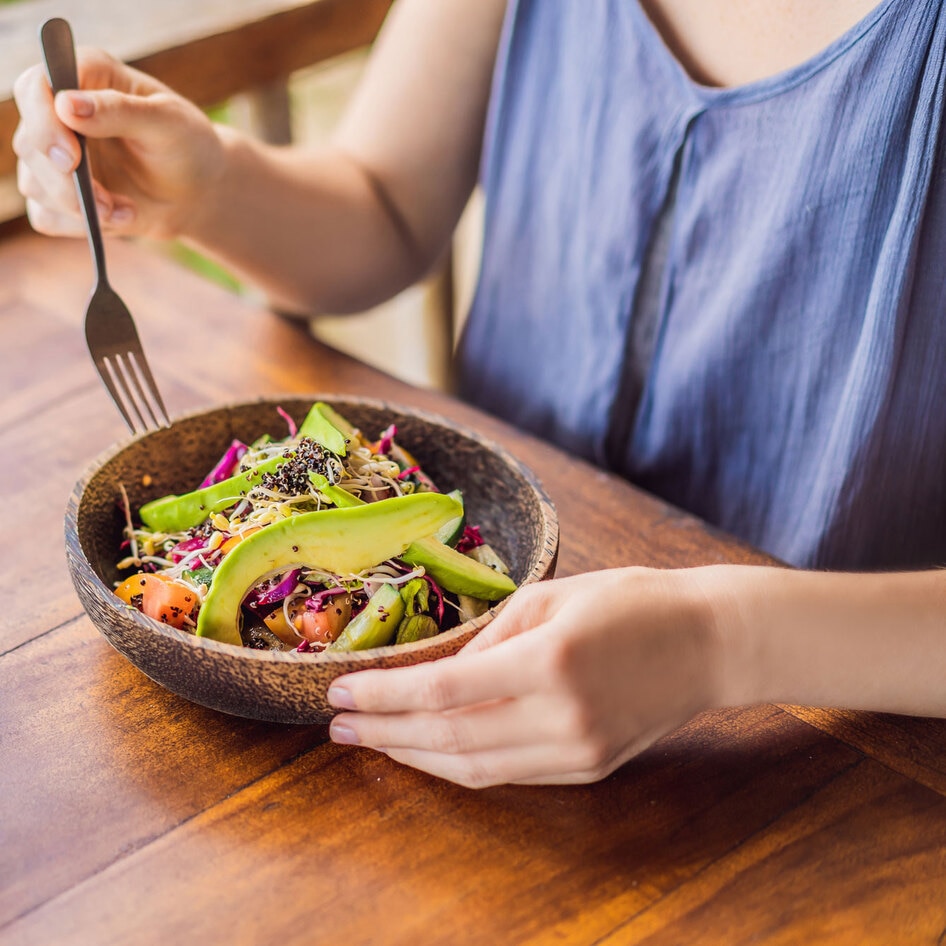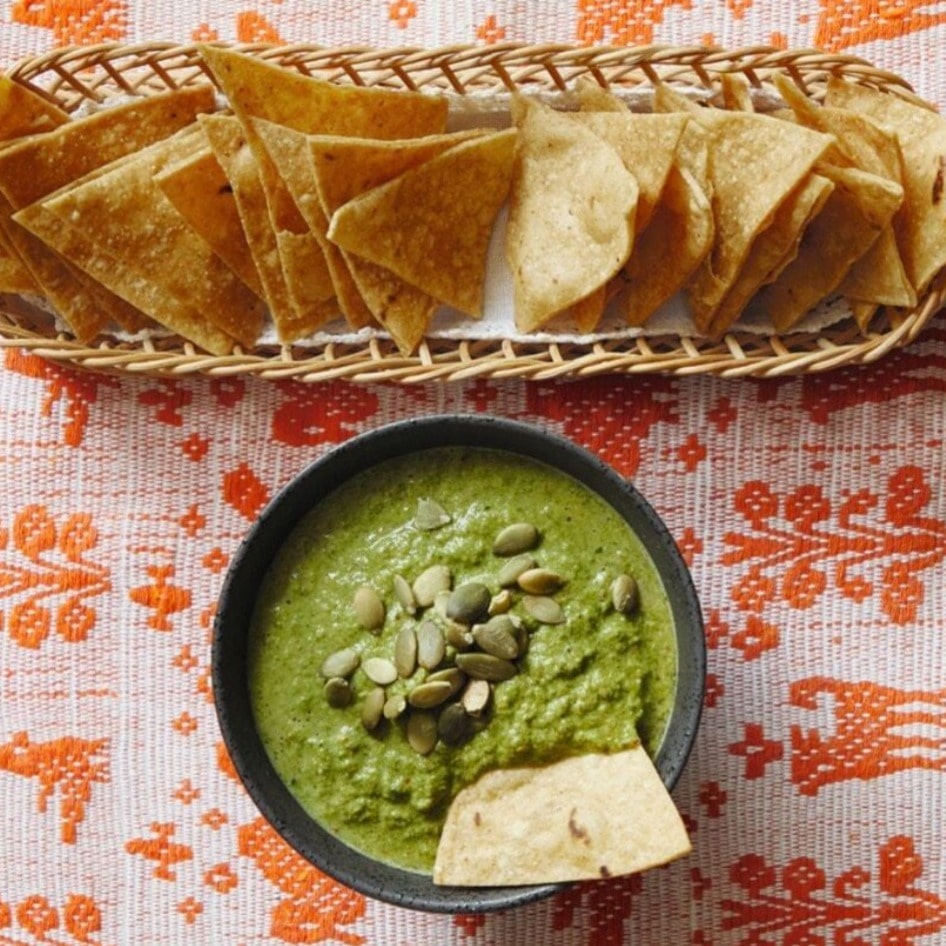There are 36.7 million yoga practitioners in the US alone. Some live for Kundalini while others merely dabble in the occasional Restorative class, but what many don’t realize is that yoga is far more than a mind/body practice—food plays an integral role as well. Dedicated practitioners rely on the yogic diet to stay fit, both physically and mentally, so they can best connect to their practice, nailing that wheel pose and finding true peace during each Shavasana. Next time you’re at the store (or the farmers’ market), pick up these eight yogic foods to bring out the yogi in you.
1. Tomatoes
Yogic food stresses the importance of consuming seasonal vegetables and eating them raw, if possible. The raw element is emphasized, because practitioners believe that this unique living, vibrating state informs the body how to digest and best assimilate the foods’ vital elements. In tomatoes, one of these elements is lycopene, a key nutrient with antioxidant properties. It helps repair brain cells and lowers stress levels.
Pro Tip: Incorporate beautiful raw heirloom tomatoes (when in season) with celebrity chef Matthew Kenney’s famed Raw Lasagna. Layered with rich pesto, macadamia ricotta, zucchini noodles, and tomatoes, this dish is perfect for a date night in following a partner yoga sesh.
2. Leafy greens
Research links salad consumption with lower stress levels, and there’s no better base for a salad than dark, leafy greens! A key component of the sattvic food that makes up the yogic diet, greens are seen as energy- and strength-giving foods, two necessary elements to get you through a 90-minute flow and nail that headstand.
Pro Tip: Steer clear of sad salads. This multi-dimensional bowl of greens is anything but.
3. Watermelon
Seasonal fruits are an essential part of the yogic diet as they are believed to help enhance clarity and lightness in the body. Watermelon, with its high water and low calorie content, acts as a natural toxins cleanser and provides nutrients without adding weight or excess heaviness.
Pro Tip: Watermelon poké bowls are gaining in popularity, but have you ever tried a Watermelon Poké Burger? Made with marinated watermelon, thick slices of avocado, and a hearty round of seasoned tofu, this sandwich will make you feel light yet stable as you hold that Warrior III pose.
4. Almonds
Yogic foods should bring mental peace, and the feel-good amino acids found in almonds will help you get there. These nuts contain tyrosine which supports the creation of dopamine, a neurotransmitter that activates the brain’s pleasure and reward system. Nibble on a small handful before your 5:15am practice for a little extra motivation to grab your mat and get out the door.
Pro Tip: Almonds are satisfying enough on their own, but those with a sweet tooth should give these Detox Almond Butter Cups a try.
5. Pineapple
According to the sattvic diet, foods should not cause any stomach agitation. This principle stems from the yogic idea that there is a link between your gut and the brain, making proper digestion an imperative in order to live a healthy and happy life. Pineapple contains a special enzyme called bromelain, which helps digestion.
Pro Tip: Cool off from that hot yoga sesh with this incredibly refreshing and rejuvenating Pink Summer Smoothie sweetened with blood oranges, strawberries, and of course, pineapple.
6. Whole Grains and Legumes
Yogic foods primarily include plants that are nutritionally dense and very easy to digest. Whole grains and legumes tick both boxes. Whole grains (such as quinoa, oats, and buckwheat) retain all parts of the original seed, though they can be ground into a flour and still be considered whole. These foods are full of fiber, which significantly aids in digestion. Legumes (including lentils, chickpeas, and soybeans) are part of the yogic diet for their dense protein content in addition to providing essential minerals such as potassium and magnesium.
Pro Tip: Fuel up after your Yoga Strength class with this exceptional protein-rich Chickpea & Lentil Soup.
7. Rice
Rice is a symbol of sustenance and is highly revered as a yogic staple food. This grain is rich in carbohydrates, providing sustained energy throughout your day, not just during your practice. Rice is also a significant source of vitamins such as thiamine, riboflavin, niacin, and vitamin D which can lower LDL cholesterol, boost brain function, and help prevent type 1 diabetes.
Pro Tip: Spice up your rice with a bowl of this West African Vegan Jollof Rice & Beans dish.
8. Cinnamon
Add some flavor to your yogic diet with a dash of anti-inflammatory cinnamon. This unique natural healing property lends itself well to the essence of yogic foods, which emphasizes soothing elements in all foods. Fight inflammation and feel more at peace with your body by adding just a touch of this sweet aromatic spice.
Pro Tip: Add a dash of cinnamon to a steaming cup of green tea for an unexpected yet pleasant pop of flavor in your daily afternoon cuppa.
Joy Smith is a speaker, mentor, and founder of Joy Organics, an organic full spectrum hemp oil product company.
JUMP TO ... Latest News | Recipes | Guides | Health | Subscribe







